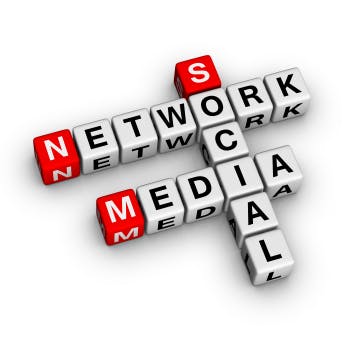Last month I shared my befuddlement about the National Business Group on Health’s findings that employees don’t want information about their benefits via social media.
When asked how interested would they be in receiving health benefit information via social media, about three in four said they had no interest in getting this information via Facebook; slightly more — approximately 80 percent — had no interest in receiving a tweet (Twitter) with health benefit information. Virtually all respondents said they would prefer receiving this information via regular mailings to their homes or via emails.”
Helen Darling, NBGH’s president, was quoted in the press release:
While all the rage outside of the workplace is on social media, most employees aren’t ready to mesh that part of their routine into the workplace, at least when it comes to health benefits. In fact, a vast majority of workers would prefer their employers stick to tried and true communication methods — mailings to home and e-mail.”
I didn’t think that lined up with trends, so i consulted two superb resources on the subject: Susannah Fox, associate director at PewInternet, and Jane Sarasohn-Kahn, health economist, and blogger at HealthPopuli.com, and author of a white paper about mobile tools and the chronically ill.
Susannah confirmed that the stats for who’s using social media ring true, based on their 2009 data on what people are doing online. As did NBGH, Pew also found limited use of social network sites (MySpace, Facebook and Twitter) for getting and sharing health information, with about 1 in 10 social network site users getting health information on these sites (source: 2008 study).
When you consider how many adults look online for health information, the picture changes slightly. Some 83 percent of Internet users are looking for health information (2009), and 37 percent have read about someone else’s health experience, consulted online rankings and reviews, or in some other way accessed user-generated information (2008). Susannah confirmed that in their August 2010 health survey they’ll be looking for any jump in use of social networks for getting health information and that they have unreleased data showing a jump in overall use of social networks.
From Jane’s perspective:
The finding that workers generally don’t want to hear much from their employers on health issues via social media distills the fact that employees tend to want to keep employers from getting too close to them in their personal health management. That’s why there’s HIPAA, and case law surrounding an employee’s right to privacy when it comes to personally identifiable health information.”
She went on to highlight that:
We’re entering a gray zone where health citizens may choose to post personal information on social networks — whether in Facebook or in condition-specific sites like Patientslikeme. Employers who want to motivate employees toward greater health engagement will need to work with trusted partner-intermediaries who will preserve the arm’s-length relationship between worker and workplace.”
As we surge ahead into these murky philosophical and ethical waters, social media and mobile use are on the rise. Millenials keep pushing the boundaries on what’s private and what’s not. More broadly, many are finding benefit from sharing their health information online. This concept is what’s behind CureTogether, a website and community where people contribute their health data to improve their treatment and inform, if not drive, research. and we’re still unpacking how our social networks (online and off) affect our health.
And therein lies the crux of my earlier befuddlement. The NBGH findings are right on for multi-generational companies today, but will they still be right on for tomorrow’s? That’s the question companies need to be evaluating now.
And one more thing: A commenter on this post raised the very valid point that NBGH’s findings might have been different had the questions been phrased differently. NBGH specifically asked respondents whether they’d like health information via Facebook, Twitter, or text. They did not ask whether employees would like easier access to someone who could help answer their questions or if they’d like to be connected online with others with similar health goals or chronic conditions. They also didn’t ask about other forms of social media, like social networks and blogs. The answers to these questions that focus more on activity than tool might paint a different story.
This was originally published on Fran Melmed’s Free-Range communication blog.
